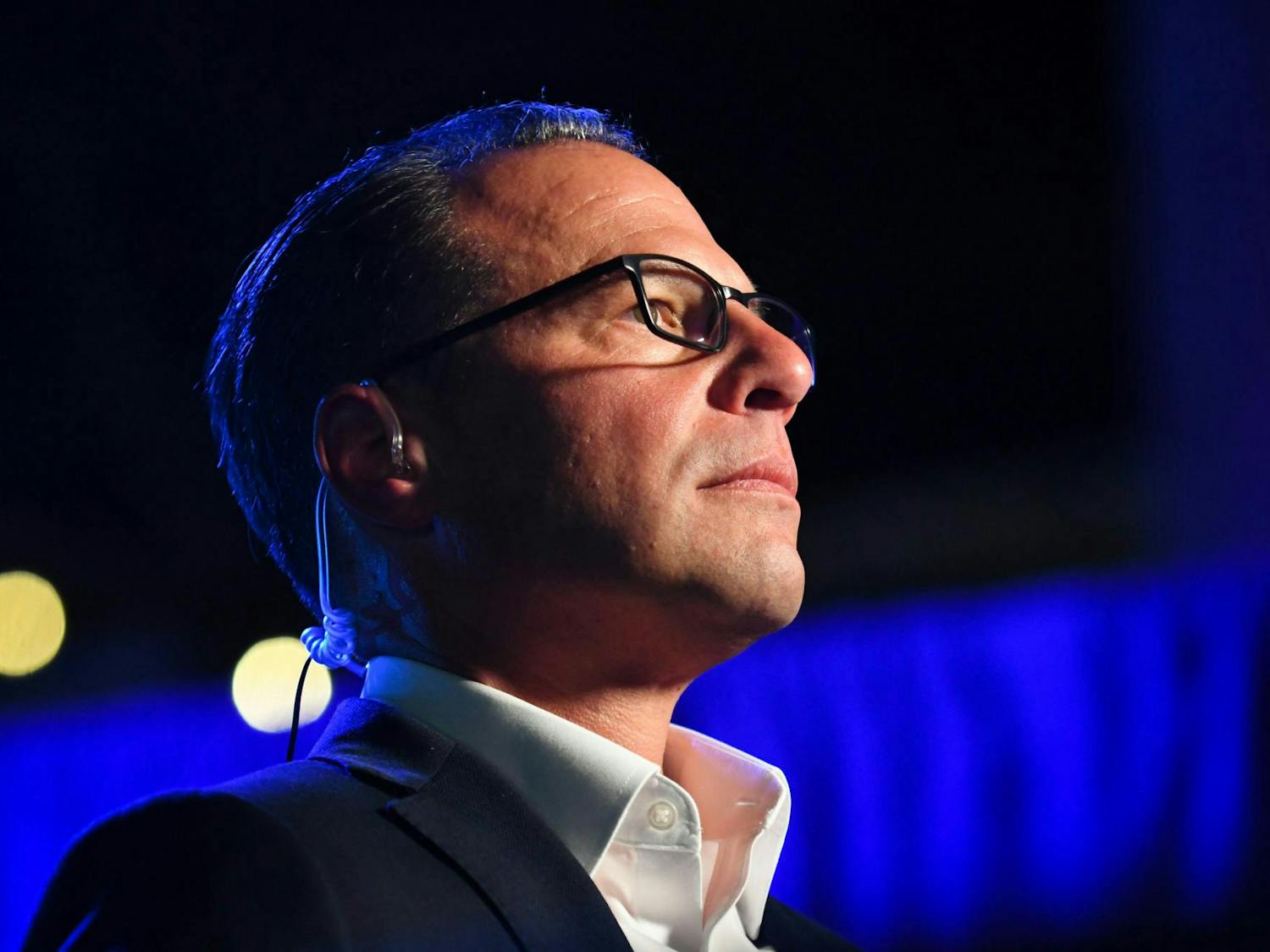The trial of the alleged killers of University biochemist Vladimir Sled got off to a rocky start Monday, when a three-week old U.S. Supreme Court decision forced prosecutors to try the two defendants separately. Eugene Harrison, 34, and Yvette Stewart, 30, are both being tried on more than a dozen charges stemming from the October 31, 1996, murder of Sled on the 4300 block of Larchwood Avenue, as well as the robbery earlier that day of a Philadelphia Daily News driver. Another defendant, 26-year-old Bridgette Black -- who has admitted to being the one to actually stab and kill the 38-year-old Russian-born scientist -- is not contesting her role in the crime and is scheduled to testify for the prosecution. Jury selection for Harrison's trial, the first of the defendants to face charges, began yesterday and will continue today. Both trials could last as long as eight days apiece. Assistant District Attorney Dick Carroll had planned to try Harrison and Stewart together, using as major pieces of evidence the statements that both defendants made within hours of their arrests, in which they place themselves at the scene. Harrison admits in his statement to playing a role in the robbery, while Stewart denies having had any foreknowledge of it. But both Harrison and Stewart make repeated reference in their statements to their co-defendant. Allowing such references is unconstitutional, the Supreme Court ruled in a March 9 decision, because it violates defendants' Sixth Amendment right to cross-examine their accusers. Until the high court ruled in Kevin Gray vs. Maryland, prosecutors could use statements by one co-defendant if the other name was erased. Common Pleas Judge Eugene Clarke quickly made his interpretation of the decision clear. "If it mentions the co-defendant in any way, I'm not going to let it in," Clarke told the attorneys. Carroll said he had planned to use both statements in a joint trial because "he did not read [the decision] as strictly as [Clarke] read it." The prosecutor then asked to proceed with separate trials so he could use the statements against the person who made it. Clarke was clearly agitated that lawyers filed the motions based on the Supreme Court case --Eparticularly because all the lawyers had assured him Friday that the Gray case would have no impact on the trial. "We have wasted a whole day doing something that could have been done last week," he said. Eventually, the veteran judge agreed to hold the two trials back-to-back in his courtroom, room 702 of the Criminal Justice Center at 13th and Filbert streets. Stewart's trial will follow Harrison's. Carroll said he will essentially be presenting the same case twice, with the only difference being which statement to admit into evidence. Neither defendant showed much emotion during the opening days of the trial. Harrison, the only defendant in the room yesterday, frequently spoke to his attorney but avoided eye contact with the potential jurors. Stewart was only in the courtroom Monday when the joint trial was still scheduled. Opening statements are now set for tomorrow morning, with testimony starting in the afternoon. Tomorrow's testimony is expected to be dominated by police officers, detectives and the medical examiner who performed the autopsy on Sled's body. Black will likely testify Friday, and former University researcher Cecilia Hagerhall, 34, who was engaged to Sled and was with him during the attack, will likely take the stand Monday. She now resides in Sweden, and is flying in for the trial Friday. The jury could begin its deliberations as early as Monday afternoon. Immediately following the verdict, jury selection for Stewart's trial will begin, and all of the witnesses will have to testify once more. In a testament to the highly publicized nature of the murder, 38 out of the 40 prospective jurors yesterday said they had heard about the case from the newspaper or on television. Carroll and Harrison's attorney Tariq El Shabazz agreed on seven jurors out of the pool. Selection of the 12-member jury and two alternates will continue today. Of the seven jurors, five are women. Four are black and three white. All three accused killers, who are West Philadelphia residents, are black, while Sled and Hagerhall are white. Potential jurors were asked such questions as whether they or someone they knew had been the victim of a crime or charged with a crime. El Shabazz asked most potential jurors if they understood the legal doctrine that the defense does not have to present any case at all since the onus is entirely on the government to prove its case. That may be an indication that the defense does not plan to mount its own case, relying instead on cross-examination of the prosecution's witnesses. El Shabazz declined to comment after yesterday's session. Harrison admits in his statement to the robbery, but said he did not know Black had a knife and did not plan to kill Sled. Since Clarke ruled that statement admissible, El Shabazz is likely hoping the jury finds his client guilty of manslaughter rather than second-degree murder, Carroll said. During jury selection, each side is given seven peremptory challenges, where they can dismiss a potential juror without giving a reason. They can also request that one be dismissed for "cause." Selection should move quicker today, since the defense has only one peremptory challenge left, while the prosecution has three. Sled's murder is the only homicide of a Penn employee or student since August 1994, when a group of teenagers robbed and killed Mathematics graduate student Al-Moez Alimohamed, 27, near 48th and Pine streets.
The Daily Pennsylvanian is an independent, student-run newspaper. Please consider making a donation to support the coverage that shapes the University. Your generosity ensures a future of strong journalism at Penn.
Donate







